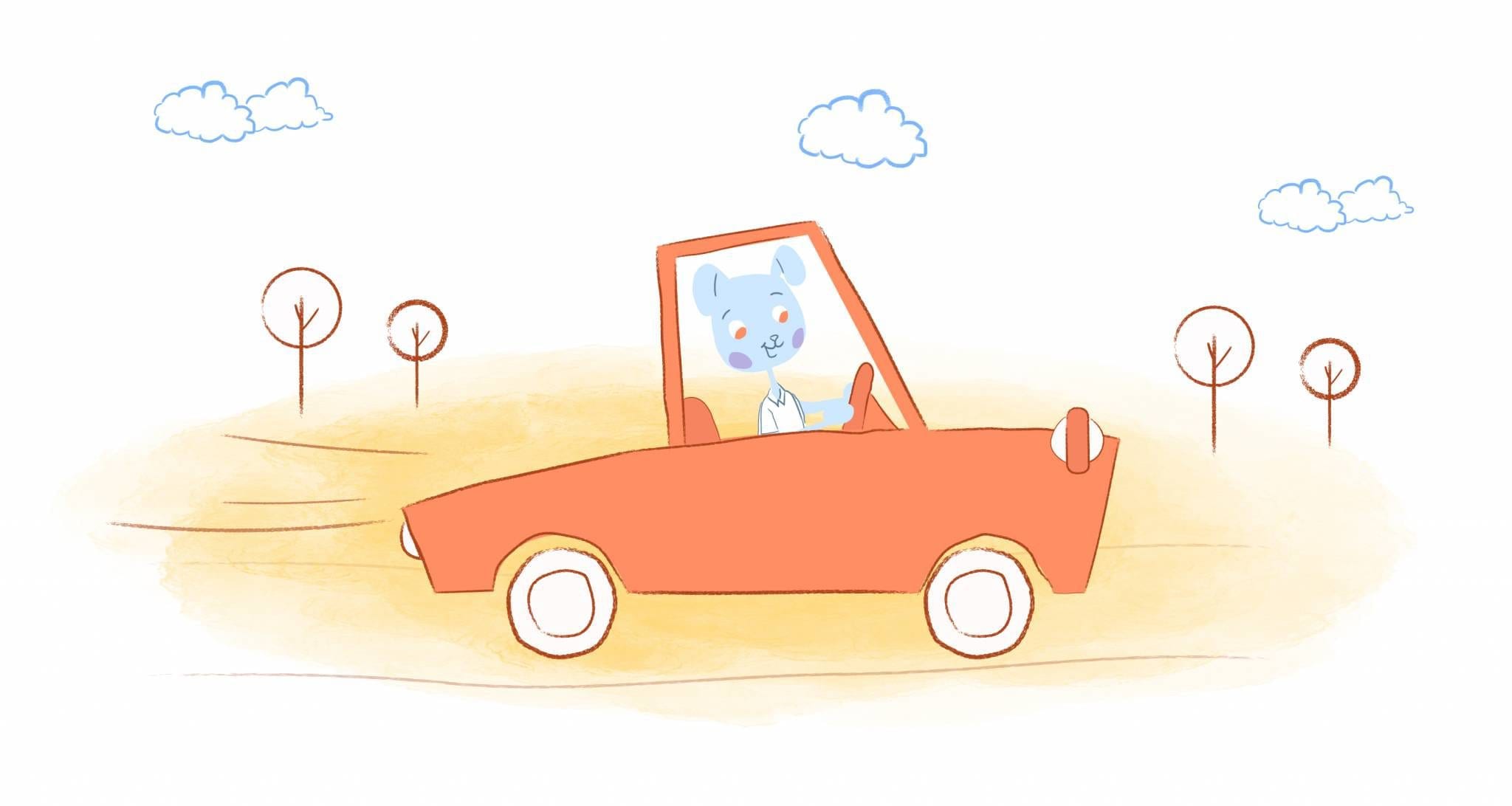

Growing up, my dad wasn’t much of a flyer. He preferred to hit the open road instead. That meant that we took a lot of road trips.
While flying is definitely more convenient, I’m still partial to this type of travel. Maybe it’s nostalgic. But, I think it’s really because of the independence — like deciding when to leave and stop.
Regardless, the most valuable tip that I learned from my old man was to fill up the gas tank the night before. The reason was quite simple. When we were ready to depart the following day, we could just go without making additional pitstops.
Of course, at some point, we would have to refill. That could be tricky, though, if you were low on gas while on a stretch of highway without a service station in sight. If you weren’t paying attention, you could end up stranded in the middle of nowhere.
Just like a car, we also have a gas tank. It’s called our emotional gas tank that is drained by our daily commitments and responsibilities. And, when it’s bone dry, you can’t expect to go far.
Even worse? When we don’t fill out emotional gas tanks, that can cause anxiety, depression, and hopelessness feelings. As a consequence, that negatively impacts your health, productivity, and relationships.
Thankfully, you can keep your engine running well by managing your energy and keeping it well stocked. While that can vary from person-to-person, here are 10 ways to get started.
1. Keep an “energy log.”
Before your car comes to a complete, dead stop, there will be signs of “fuel starvation.” In a vehicle, these would be signs like engine sputter or intermittent power surges. For you, these could be red flags like procrastination or loss of motivation.
Obviously, you want to prevent getting emotionally depleted in the first place. When you do, you’ll be able to take the appropriate measures to avoid burnout. And a simple way to achieve this is through an “energy log.”
“Reflect on what gives you energy and brings you joy,” suggests Mandy Haskett for Fast Company. “List those things.”
More importantly, list “the things or people that drain your energy and steal your time,” adds Haskett. “Then, identify one change you can make right now so that you’re doing more of what gives you energy and less of what doesn’t.”
2. Create predictability.
Specifically, when it comes to processes and procedures. For instance, creating a positive daily routine. Having this provides structure, builds healthy habits, and increases efficiency.
Moreover, routines build momentum and negate the need for willpower and motivation. It also saves you time and energy since you’re essentially on autopilot. In turn, this allows you to focus more on the vital few.
3. Spend time in nature.
It really doesn’t matter what you do. Just get outside. Whether if that’s tasking your dog for a walk, reading a book in a park, or laying in a hammock.
Research shows that being outdoors is one of the best things you can do for your mind, body, and soul. Mainly because it boosts your energy, creativity, immune system, and focus. It’s also to engage in physical activity when outside, helps with Seasonal Affective Disorder and lets us escape societal pressures.
4. Find solitude.
While it’s true the loneliness epidemic has only gotten worse in the wake of COVID, there are solitude benefits. Having time to yourself gives you the chance to reflect, plan, and get more comfortable in your skin. Studies have also found that being setting alone time:
- Fosters creativity
- Improves performance
- Develop more compassion for others
- Improves psychological well-being by increasing happiness and decreasing stress
While it may seem impossible to find alone time, in reality, you only need small doses. It could be when you’re taking a shower or the block of time between meetings. Regardless of when you have the chance, make the most of it by meditating, journaling, or singing along to your favorite song.
5. Carve out lazy time.
Personally, this was something that I struggled with for years. But, I think it’s actually a common problem. And, that’s getting stuck on a hamster-wheel-of-productivity.
I mean that there’s a belief that if you aren’t always doing something, you’re lazy. But, that’s not always the case. We all need those occasional blocks of nothingness.
Does that mean you should spend your entire weekend doing absolutely zilch? Probably not. However, there’s nothing wrong with spending a Saturday morning watching a movie with your significant other before running errands or cleaning the house.
6. Dump the toxic clutter.
Speaking of cleaning, you always keep your home and workspace nice and near, right? The same goes for your relationships and unnecessary wastes of time.
Let’s say that you have a manipulative friend. Not only do they have a knack for wasting your valuable time, but they’re also exhausting. They’re also known for sabotaging your self-esteem.
These types of people need to go — whether at work or in your personal life. Additionally, if there are time wasters, like pointless meetings or tasks that don’t bring you closer to your goals, they also need to go out with yesterday’s trash.
7. Take care of what’s under the hood.
When you’re running on fumes, it’s easy to neglect your health. Instead of making a well-balanced dinner, you go through a fast-food drive-through. And, since you’re tired, you’d rather spend your downtime watching TV as opposed to exercising or reading.
What happens is that this becomes a vicious cycle. Since you’re aren’t prioritizing your health, you constantly feel run-down. And that is only going to keep you going for so long.
Just like putting cheap fuel into your car, you need to eat and drink real food. Schedule time for any sort of physical activity and health check-ups, as you would when maintaining your vehicle. And, always get the sleep you need each night.
8. Give yourself something to look forward to.
Practicing mindfulness and living in the present are tired and true strategies for refilling your emotional gas tank. “However, during particularly stressful moments in time, like our current pandemic, it can be more beneficial to have something to look forward to,” therapist LeNaya Smith Crawford told HuffPost.
“Staying in ‘the now’ is a really good tool, just not all the time,” added psychotherapist Lucy Beresford. “Otherwise, you miss out on the joys of reflection and anticipation.” Additional benefits include making you feel optimistic about the future and provides a pleasant distraction.
What’s more, it motivates you when you want to give up. “Anticipation implies a future reward, and rewards are powerful motivators,” Smith Crawford said.
“Anticipation also creates discipline,” stated Smith Crawford. “It helps with delayed gratification. This teaches us that if we can be patient, a greater experience — or reward — is upon us.”
In the past, this could have been planning an overseas trip. But, you could plan something as simple as going hiking this weekend or planning a virtual after-hour event with your team.
9. Tap into the power of rituals.
Rituals are nothing more than the actions that you perform regularly. For example, as soon as you wake-up in the morning, your exercise and eat breakfast with your family before looking at your phone. During the evening, you could review your calendar for tomorrow and read before bed.
Ideally, rituals should be the things that are most important to you in life. When they become more scheduled and systematic, they provide structure and renewal.
10. Squash invading ANTs.
I’m not talking about the eusocial insects here. Instead, I’m referring to automatic negative thoughts that will rapidly drain your energy. In fact, negative thinking is probably the fastest way to deplete your resources.
But, what exactly are ANTs and how can you stop them?
First developed by one of the founders of cognitive therapy, Aaron Beck, in the 1960s, ANTs are like uninvited guests in our heads. They appear from out-no-where and then “leave behind a mess of uncomfortable emotions,” explains John-Paul Flintoff in a piece for The Guardian.
“ANTs sabotage our best self and lead to a vicious circle of misery,” adds Flintoff. In turn, this creates “a general mindset that is variously unhappy or anxious or angry (take your pick) and which is (therefore) all the more likely to generate new ANTs. We get stuck in the same old neural pathways, having the same negative thoughts again and again.”
The good news is that it’s totally possible to “disrupt this poisonous cycle.” To accomplish this, you first need to become of your automatic negative thoughts. That simply means recognizing and acknowledging it so that you can remind yourself that it’s only a thought.
After that, challenge your thoughts by standing up to them like who would to any other bully. Then, you can go ahead and turn into a PAT (Positive & Affirming Thought). For example, instead of saying that “My presentation is going to bomb tomorrow,” replace it with “I’ve prepared all month for this presentation and I’m going to crush it.”











John Hall
John Hall is the co-founder of Calendar a scheduling and time management app. He’s also a keynote speaker that you can book at http://www.johnhallspeaking.com.